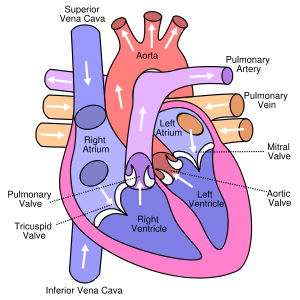
With valvular insufficiency, the valve does not close completely, which allows blood to leak backwards across the valve, also known as regurgitation. With valvular stenosis, the heart valves become stiffer, narrowing the valve opening and reducing the amount of blood that can flow through it. Most valvular disease is classified as congenital—which means that the disease was present at birth—or it is acquired—developed later in life. Early symptoms or signs of valvular heart disease could be shortness of breath or difficulty breathing, palpitations, swelling of ankles, feet or abdomen, weakness or dizziness, quick weight gain and/or chest pain and syncope (black-out). If you begin to experience any of these symptoms or they become more frequent or severe, contact your physician immediately. If you have been diagnosed with stenosis or insufficiencies and you begin to experience any of the symptoms mentioned above, or you feel that your medications are unable to control your symptoms, you may be a candidate for heart valve surgery.
Currently at LA CVT, we offer minimally invasive techniques to valve repair or replacement as well as traditional techniques. Heart valves can be repaired or replaced via open sternotomy or thorocotomy, using tissue or mechanical valves. For more information on Valvular Heart Disease, call the cardiovascular specialists at Louisiana Cardiovascular and Thoracic Institute at (318) 442-0106 or visit www.lacvt.com.









